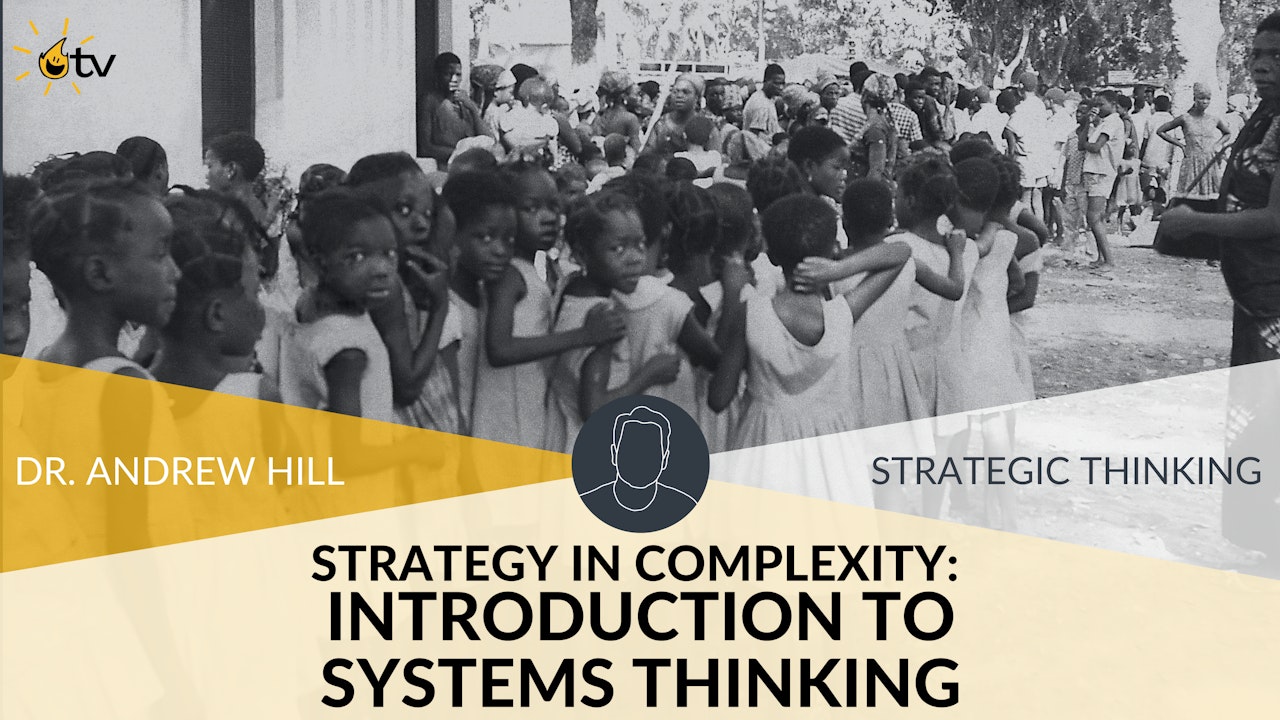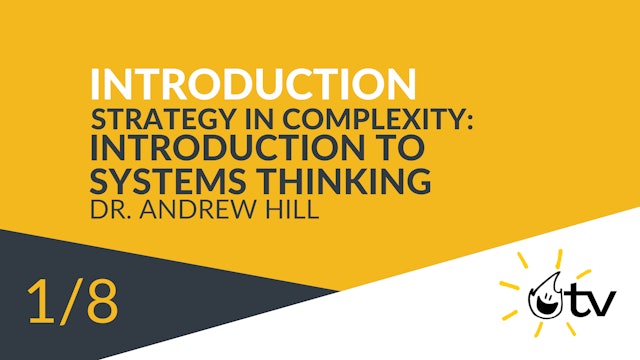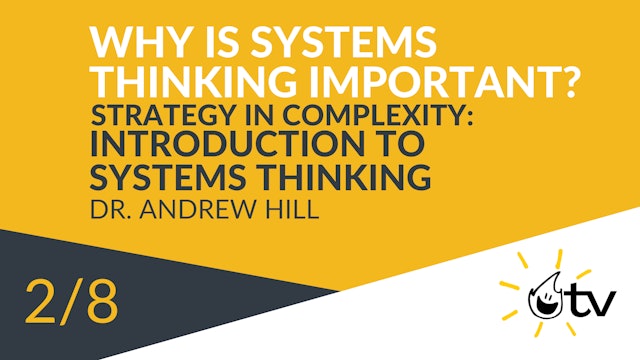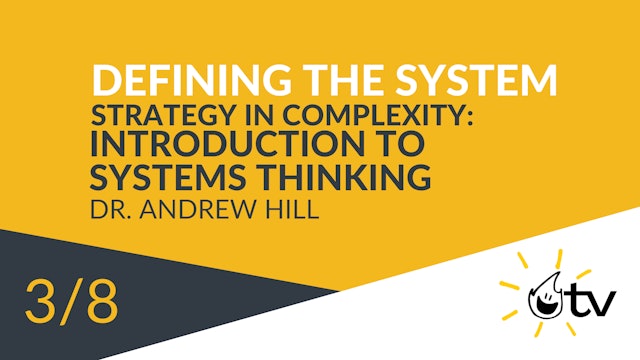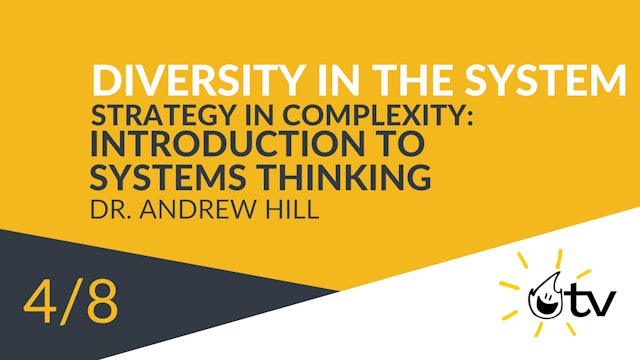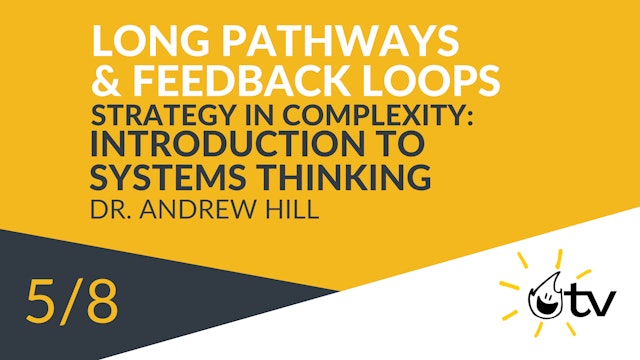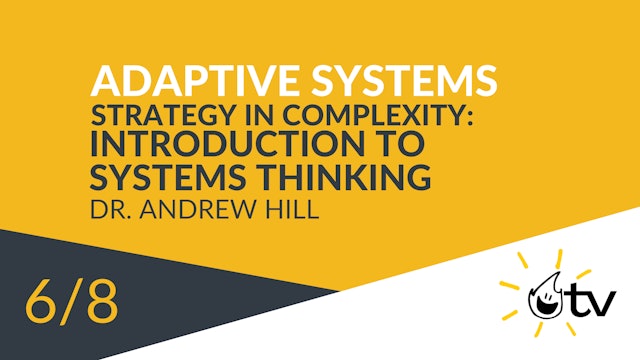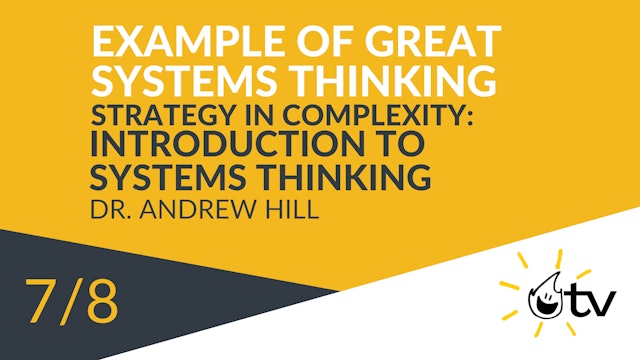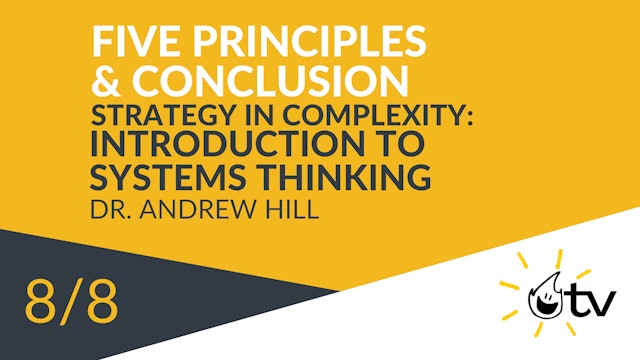Strategy in Complexity: Intro to Systems Thinking
This program introduces "Systems Thinking", a powerful discipline for leaders of organizations and teams as they develop and implement strategies. What is systems thinking? It's the deliberate practice of: 1) understanding the structures and behaviors that form causal relationships in complex adaptive systems, and 2) using that understanding to leverage the system's behaviors to achieve your strategic goals. In 1977, the World Health Organization succeeded in eradicating smallpox from the human population. This ten-year program was one of the great achievements of the 20th century--it conquered a virus that had killed over 500 million people in the previous hundred years in human circulation, more than all the wars of that period. The eradication program was a great example of systems thinking.
-
Introduction to Systems Thinking
"Systems Thinking" sounds both important and difficult. And it is! But it's also an incredibly powerful approach to dealing with the inherent complexity of the world we live in.
-
Why is Systems Thinking Important?
Most of the really important problems in the world occur in complex, adaptive systems: homelessness, unemployment, poverty, pollution and environmental damage, substance abuse--these are all problems of systems. In the business world, all competition occurs in complex, adaptive systems. Leaders w...
-
Defining the System
Where does the system start and end? This is a tough question, but it's also extremely important.
-
Diversity in the System
What are the differences between the individual elements and their behaviors inside the system? How do those differences affect system overall?
-
Long Pathways and Feedback Loops
What are the results of our attempts to change a system? Sometimes the results are very quick and direct, and closely match what we wanted to accomplish. But sometimes the results are very surprising. "Unintended consequences" and feedback loops are both fixtures in complex systems.
-
Adaptive Systems
Complexity is hard enough, but an "Adaptive" system adds another level of difficulty. Adaptive systems change over time, usually in response to competitive pressures that change the systems' structure and composition. How do we deal with adaptive systems?
-
Smallpox Eradication: a case of great systems thinking
How did the World Health Organization eradicate smallpox? Through great systems thinking.
-
5 Principles and Conclusion
Systems thinking takes practice, and no recipe guarantees you will do it well. However, these 5 principles will help you do it better.
-
Andrew Hill Bio
745 KB
Before co-founding BurnBright, Andrew was a professor at the U.S. Army War College, where he taught senior national security professionals. As the War College's first Chair of Strategic Leadership, Andrew's research focused on connecting people, strategy, and innovation. He has a doctorate from H...


